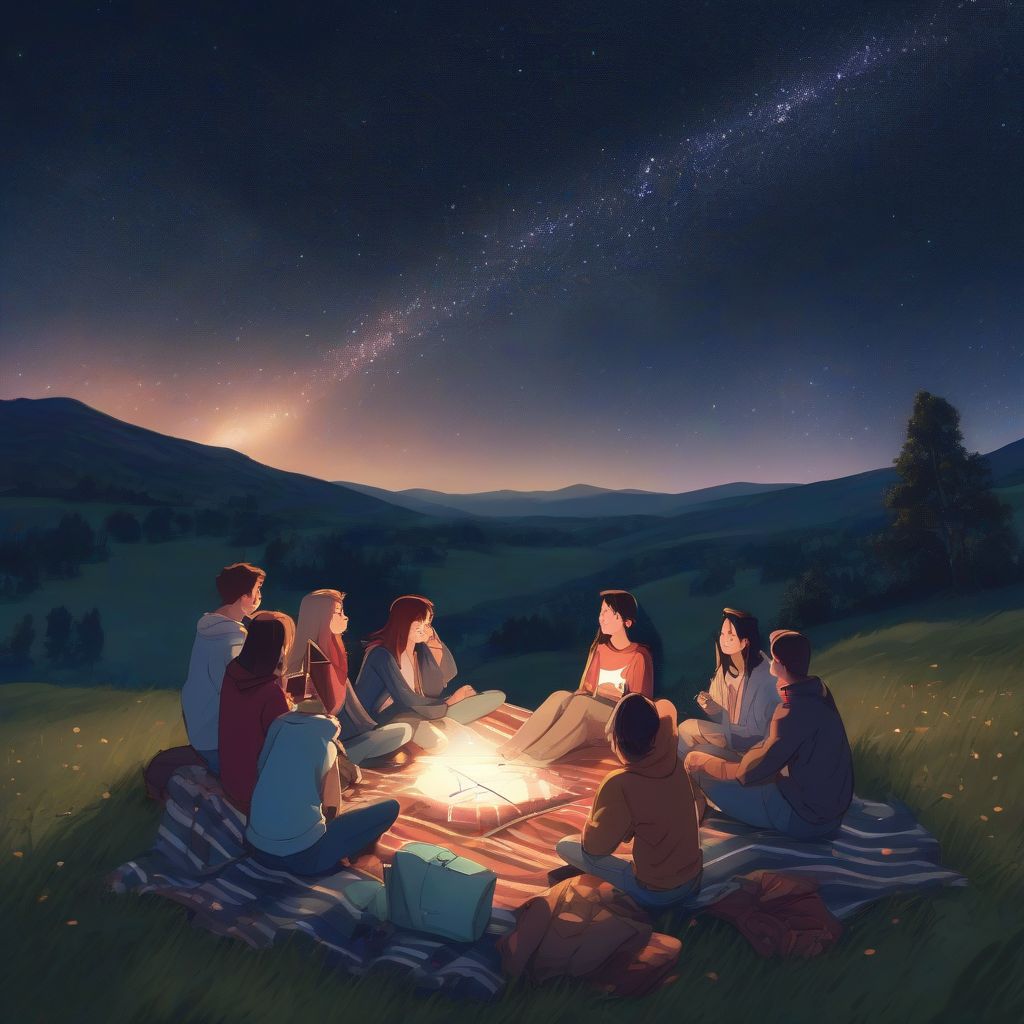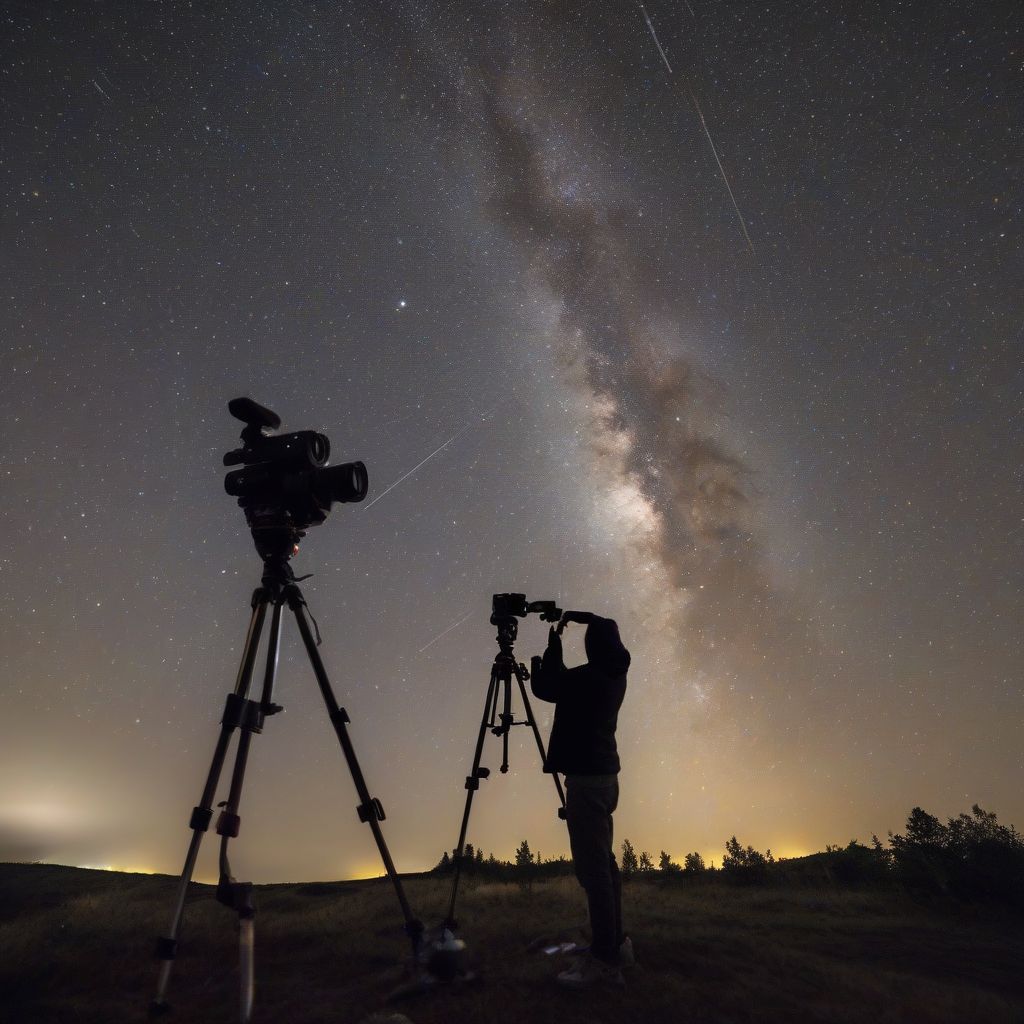Have you ever wished upon a shooting star? Many of us have, captivated by the fleeting beauty of these celestial wonders. Now, imagine witnessing not just one, but a shower of meteors blazing across the night sky! A meteor shower is an unforgettable experience, and with a little preparation, you can make the most of this celestial spectacle.
Choosing the Right Meteor Shower
Before we dive into the how-to’s, it’s important to choose a meteor shower that’s worth your while. Some are more spectacular than others, known for their frequency and brilliance. Here are a few favorites:
- The Perseids (August): Known for their fast, bright meteors and high hourly rate, making them a great choice for beginners.
- The Geminids (December): Often boasting bright, colorful meteors, this shower is a favorite for its reliability.
- The Quadrantids (January): While short-lived, the Quadrantids can be impressive, with potential for bright fireballs.
You can easily find information on upcoming meteor showers online, including their peak dates and times.
Location, Location, Location: Finding the Perfect Spot
 Stargazing on a Hilltop
Stargazing on a Hilltop
Just like finding the perfect spot for a picnic, location is key for meteor shower viewing. Here’s what to keep in mind:
- Escape the City Lights: Light pollution from urban areas can drown out even the brightest meteors. Seek out a dark sky location, such as a state park, campground, or rural area.
- Check the Forecast: Clouds are the ultimate party pooper when it comes to stargazing. Choose a night with clear skies or as few clouds as possible.
- Consider Elevation: Higher elevations generally have clearer skies, offering better visibility.
Gearing Up for the Show: What to Bring
Stargazing is a wonderfully minimalist activity, but having a few essential items can greatly enhance your experience:
- A Comfortable Chair or Blanket: You’ll be spending a good amount of time looking upwards, so comfort is crucial. A reclining lawn chair or a blanket spread on the ground will do the trick.
- Warm Clothing: Even on summer nights, temperatures can drop significantly after dark. Layer up to stay warm and comfortable.
- Red Light Flashlight: A red light flashlight preserves your night vision, making it easier to navigate your surroundings without ruining your stargazing.
- Snacks and Drinks: Watching meteors is hungry work! Pack some snacks and beverages to keep you fueled throughout the night.
- Bug Spray: Depending on your location and the time of year, mosquitos and other insects can be bothersome. Protect yourself with bug spray.
Setting the Stage for Stargazing Success
Now that you’re all set, it’s time to put the final touches on your meteor shower viewing experience:
- Arrive Early: This gives your eyes time to adjust to the darkness, allowing you to see more meteors.
- Turn Off All Lights: Even the smallest light sources can interfere with your night vision.
- Be Patient: Meteor showers are a natural phenomenon, and their appearances can be sporadic. Be patient, relax, and enjoy the show.
Beyond the Meteor Shower: Exploring the Night Sky
While you’re waiting for meteors to streak across the sky, why not take the opportunity to explore other celestial wonders? Download a stargazing app to help you identify constellations, planets, and satellites.
Capturing the Magic: Tips for Photographing Meteor Showers
 Photographing a Meteor Shower
Photographing a Meteor Shower
Want to capture the magic of a meteor shower on camera? Here are a few tips:
- Use a Tripod: A tripod is essential for keeping your camera steady during long exposures.
- Choose a Wide-Angle Lens: This allows you to capture a larger portion of the sky, increasing your chances of photographing meteors.
- Experiment with Settings: Start with a high ISO, a wide aperture (low f-stop number), and an exposure time of at least 15 seconds. Adjust as needed.
Meteor Showers: A Universe of Wonder Awaits
Witnessing a meteor shower is an awe-inspiring experience that connects us to the vastness of the cosmos. By following these simple tips, you’ll be well-prepared to enjoy this celestial spectacle and create memories that will last a lifetime.
Stargazing Resources:
- International Meteor Organization: Find information on upcoming meteor showers, viewing tips, and more.
- Stellarium Web: Explore a realistic 3D simulation of the night sky from your location.
[amazon bestseller=”telescopes for beginners”]
Remember, the most important thing is to relax, enjoy the show, and let the wonders of the universe fill you with awe. Happy stargazing!
